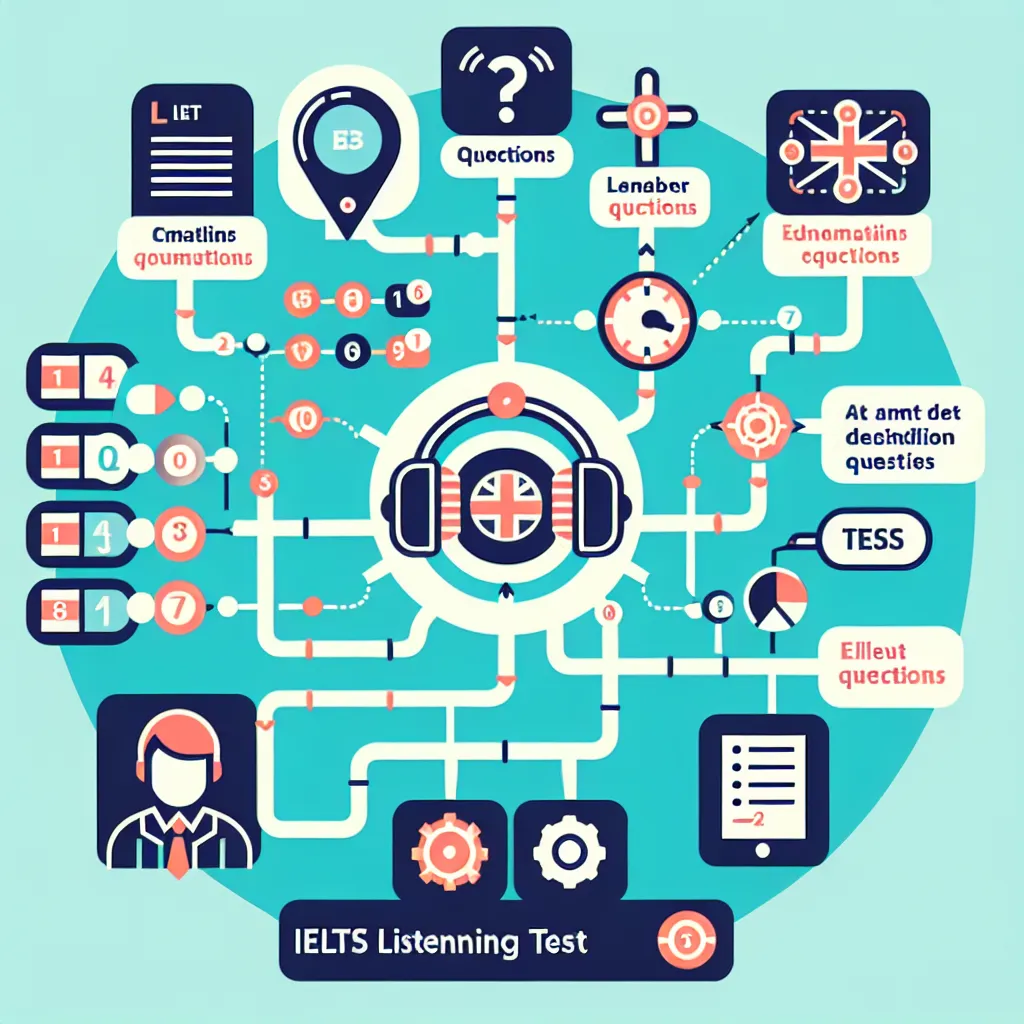The IELTS Listening section is a crucial component of the IELTS exam, testing your ability to understand spoken English in various contexts. Understanding how this section is scored can help you prepare more effectively and maximize your performance. In this comprehensive guide, we’ll explore the scoring system for the IELTS Listening test and provide valuable insights to help you achieve your desired score.
Overview of the IELTS Listening Test
Before diving into the scoring details, let’s briefly review the structure of the IELTS Listening test:
- Duration: 30 minutes (plus 10 minutes transfer time)
- Number of questions: 40
- Four sections with increasing difficulty
- Various question types, including multiple choice, matching, and form/note completion
 IELTS Listening Test Overview
IELTS Listening Test Overview
Raw Score Calculation
The IELTS Listening section is scored based on the number of correct answers you provide. Here’s how the raw score is calculated:
- Each correct answer is worth one mark.
- There are no penalties for incorrect answers.
- The total number of correct answers determines your raw score out of 40.
For example, if you answer 30 questions correctly, your raw score would be 30/40.
Band Score Conversion
Your raw score is then converted to an IELTS band score ranging from 0 to 9. The conversion is done using a standardized table that may vary slightly depending on the test version. Here’s a general guideline:
- 39-40 correct answers: Band 9
- 37-38 correct answers: Band 8.5
- 35-36 correct answers: Band 8
- 32-34 correct answers: Band 7.5
- 30-31 correct answers: Band 7
- 26-29 correct answers: Band 6.5
- 23-25 correct answers: Band 6
- 18-22 correct answers: Band 5.5
- 16-17 correct answers: Band 5
It’s important to note that these ranges are approximate and may be adjusted based on the specific test version and its difficulty level.
Scoring Criteria and Considerations
When scoring the IELTS Listening section, examiners take into account several factors:
1. Accuracy of Answers
Your responses must match the information provided in the audio exactly. Pay attention to:
- Spelling: Minor spelling errors may be accepted if they don’t interfere with meaning, but it’s best to aim for perfect spelling.
- Grammar: Ensure your answers are grammatically correct, especially for sentence completion tasks.
- Word limits: Adhere to the stated word limits for each question.
2. Following Instructions
It’s crucial to follow the instructions given for each question type. For example:
- If asked to write no more than two words, using three words will result in a wrong answer.
- When required to use words from the recording, don’t paraphrase or use synonyms.
3. Handwriting Legibility
While the IELTS Listening test focuses on auditory skills, your answers must be legible. Unclear handwriting may lead to lost marks, even if your answer is correct.
 IELTS Listening Scoring Factors
IELTS Listening Scoring Factors
Tips to Improve Your IELTS Listening Score
To maximize your performance in the IELTS Listening section, consider these strategies:
-
Practice active listening: Engage with various English audio materials daily, such as podcasts, news broadcasts, and academic lectures.
-
Familiarize yourself with different accents: The IELTS Listening test features speakers with various English accents. Expose yourself to different accents to improve your comprehension.
-
Improve your note-taking skills: Develop efficient note-taking techniques to capture key information quickly and accurately.
-
Read questions beforehand: Use the time given before each section to read and understand the questions. This will help you focus on the relevant information while listening.
-
Manage your time effectively: Practice transferring your answers to the answer sheet within the allotted 10 minutes.
-
Expand your vocabulary: A broader vocabulary will help you understand and respond to a wider range of topics and question types.
-
Take practice tests: Regularly complete full-length IELTS Listening practice tests to familiarize yourself with the format and improve your time management.
Common Pitfalls to Avoid
Be aware of these common mistakes that can affect your IELTS Listening score:
-
Misinterpreting instructions: Always read the question carefully and follow the given instructions precisely.
-
Spelling errors: Double-check your spelling, especially for proper nouns and technical terms.
-
Not attempting all questions: Even if you’re unsure, always provide an answer. There’s no penalty for guessing.
-
Losing focus: Stay concentrated throughout the test, as information can be easily missed if your attention wavers.
-
Writing too much: Stick to the word limit specified in the question to avoid losing marks unnecessarily.
Conclusion
Understanding how the IELTS Listening section is scored is crucial for achieving your desired band score. By focusing on accuracy, following instructions, and practicing regularly, you can improve your performance and boost your confidence on test day. Remember that consistent effort and targeted preparation are key to success in the IELTS Listening test.
We encourage you to share your experiences and questions about IELTS Listening scoring in the comments below. For more IELTS preparation tips and resources, explore our other articles on LearnEnglish.NET.
[internal_links]




